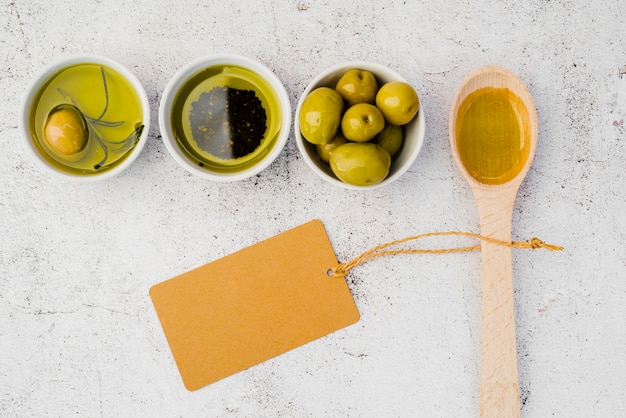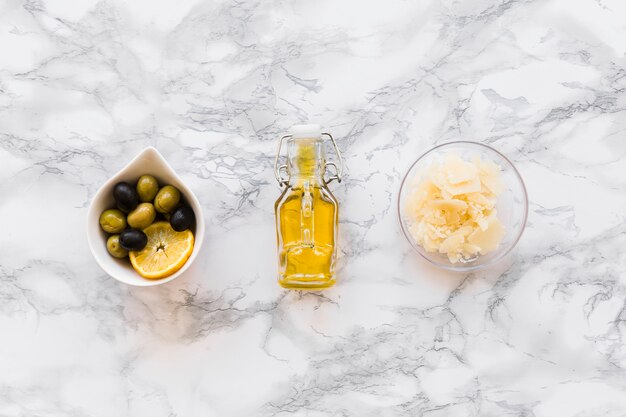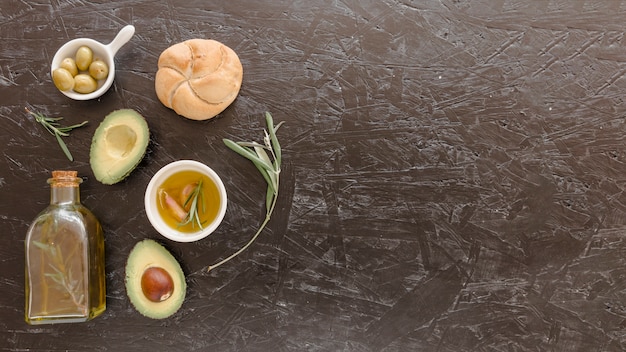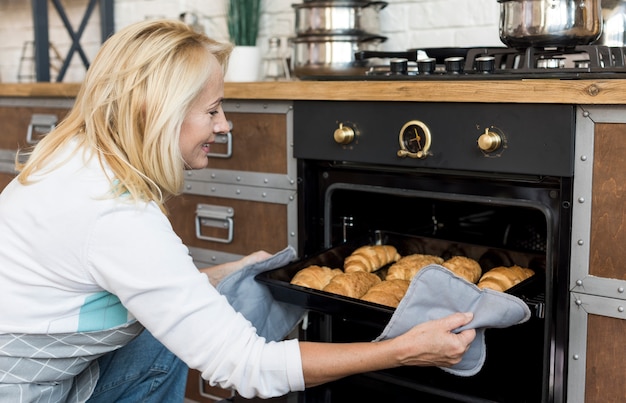Let’s be honest, olive oil is a bit of a culinary darling. We all love drizzling it over salads, adding a touch of flavour to a finished dish, but can you actually cook with it? I mean, doesn't it just burn at high heat? Well, the short answer is a resounding yes, you absolutely can cook with olive oil. And trust me, it's a game-changer!In this guide, we're going on a deep dive into the fascinating world of cooking with olive oil. We'll uncover its secrets, debunk common myths, and explore its different varieties. From understanding its smoke point to choosing the perfect oil for every dish, we'll cover it all. So, put the kettle on, grab a comfy seat, and let's embark on this culinary adventure together.
(Part 1) Olive Oil 101: The Basics

What Exactly is Olive Oil?
Olive oil is a fat extracted from olives, the fruit of the olive tree. It's a culinary staple in many cultures around the world, and for good reason. This liquid gold is packed with flavour and is a rich source of healthy fats, like monounsaturated fatty acids. It's not just a tasty addition to your food; it's also good for your heart and overall health.Types of Olive Oil
You'll find an abundance of olive oil varieties at your local supermarket, each with its unique characteristics. It can be a little confusing, but don't worry, I'm here to break it down for you. Here's a quick guide to the main types:- extra virgin olive oil (EVOO): This is the crème de la crème, the top of the olive oil hierarchy. It's produced from olives harvested at peak ripeness and cold-pressed without chemicals or heat. It boasts a robust flavour, a low acidity level, and is the perfect choice for drizzling, salad dressings, and dishes where you want that distinctive olive flavour to shine through.
- Virgin Olive Oil: It's similar to EVOO, but with slightly higher acidity. It's still a good quality oil, but it might have a milder flavour. Think of it as the younger, less intense cousin of EVOO.
- Olive Oil: This is a blend of refined olive oil and virgin olive oil. It has a more neutral flavour, making it a good choice for everyday cooking, especially when you don't want a strong olive flavour to dominate your dishes.
- Pomace Olive Oil: This is the lowest grade of olive oil, made from the pulp and pits of olives. It has a less intense flavour and is often used in industrial applications. You're unlikely to find this in your local supermarket, so it's best to stick with the higher-quality options.
The Smoke Point: Understanding the Temperature Threshold
You've probably heard people mention "smoke point" when talking about cooking oils. It's basically the temperature at which an oil starts to break down and release smoke, potentially affecting its flavour and creating harmful compounds. The smoke point of olive oil varies depending on its type, so it's important to understand this aspect when choosing the right oil for your cooking needs.- Extra Virgin Olive Oil: Has a lower smoke point, around 374°F (190°C). It's best for cooking at lower temperatures or for finishing dishes. Imagine drizzling it over a sizzling pasta dish right before serving, or using it to create a delicious sauce.
- Virgin Olive Oil: Similar to EVOO.
- Olive Oil: Has a higher smoke point, around 400°F (204°C), making it more suitable for higher-heat cooking. It's a good choice for stir-fries, searing meat, or roasting vegetables.
- Pomace Olive Oil: Has the highest smoke point but also the lowest quality. It's best avoided for cooking.
(Part 2) Cooking With Olive Oil: A Deeper Dive

The Benefits of Cooking With Olive Oil
Beyond its delicious flavour, olive oil offers a whole range of health benefits. Let's explore what makes it so good for you:- Heart Health: Olive oil is packed with monounsaturated fats, which are known to lower bad cholesterol levels and improve heart health. It's like a natural shield for your cardiovascular system.
- Anti-Inflammatory Properties: The antioxidants in olive oil have anti-inflammatory effects, which can be beneficial for overall health. It's a natural anti-inflammatory, helping to combat inflammation throughout your body.
- Improved Digestion: Olive oil can aid digestion and help with the absorption of nutrients. It acts like a digestive aid, helping your body break down food and absorb its goodness.
- Skin Health: Olive oil is often used in skincare products for its moisturising and nourishing properties. It's a natural beauty secret, keeping your skin soft, smooth, and healthy.
Different Cooking Methods with Olive Oil
Olive oil is incredibly versatile; it's not just for drizzling over salads, and you can use it for a variety of cooking methods:- Sautéing and Stir-Frying: Olive oil is fantastic for quick cooking methods like sautéing and stir-frying, where you need to quickly sear ingredients without overcooking them. It adds a lovely flavour and helps create that perfect golden crust.
- Baking: Yes, you can even use olive oil for baking! It adds a subtle, nutty flavour and helps baked goods stay moist. Imagine those delicious olive oil cakes or even olive oil bread.
- Roasting: Roasting vegetables or meats in olive oil brings out their natural sweetness and flavour. The oil helps them caramelize and creates a beautiful, crispy exterior.
- Grilling: Olive oil can be used to coat your grill grates, preventing food from sticking and adding a nice char. It helps create those grill marks we all love.
(Part 3) The Art of Choosing the Right Olive Oil

Picking the Perfect Olive Oil
Choosing the right olive oil is an art form. It's like selecting the perfect wine – you want to pick an oil that complements the dish you're preparing.Factors to Consider
Here are a few key factors to consider when picking your olive oil:- Type: As we discussed earlier, the type of olive oil – EVOO, virgin, or blended – will impact its flavour and smoke point. Choose your oil based on the dish you're making and the level of heat you'll be using.
- Flavour Profile: Olive oils have distinct flavour profiles, ranging from fruity and peppery to grassy and nutty. Consider the flavour you want to achieve in your dish. Would you prefer a robust, fruity flavour or a more subtle, nutty note? It all depends on your taste and the dish itself.
- Acidity: A lower acidity level generally indicates higher quality and freshness. You'll find this information on the bottle’s label. Look for an acidity level of 0.8% or lower for the best quality.
- Origin: The origin of the olive oil can also influence its flavour. For instance, Italian olive oil is known for its robust, fruity flavour, while Spanish olive oil is often more buttery and nutty. Experiment with different origins to see which you prefer.
Tips for Choosing the Best Olive Oil
Here are some extra tips to help you pick the best olive oil for your needs:- Read the Labels: Pay attention to the type of olive oil, its acidity level, and its origin. This information will help you make an informed choice.
- Smell and Taste: A good olive oil should have a fresh, fruity aroma and a clean, pleasant taste. Don't be afraid to take a sniff and a little taste test before you buy.
- Look for Awards: Many olive oils receive awards for their quality. Look for awards to ensure you’re buying a high-quality product. These awards are a sign of excellence and a good indicator of quality.
- Store Properly: Once you've bought your olive oil, store it in a cool, dark place away from heat and light. This will help preserve its flavour and quality for longer.
(Part 4) Olive Oil Myths Debunked
The Great Olive Oil Debate: Myth vs. Reality
Over the years, several myths have sprung up about olive oil, especially when it comes to cooking with it. Let's clear the air and set the record straight:Myth 1: Olive Oil is Only for Salad Dressings
This is a common misconception. While olive oil is fantastic for drizzling over salads, its versatility extends far beyond that. It's an excellent oil for cooking a wide range of dishes, from sautéing vegetables to roasting meats.Myth 2: Olive Oil is Unhealthy for Cooking
This myth stems from the concern about olive oil's smoke point. However, as we've discussed, the type of olive oil you choose will determine its smoke point. Using a high-quality olive oil with a higher smoke point is perfectly safe for cooking. It's about understanding the smoke point and choosing the right oil for the right task.Myth 3: All Olive Oils Are Created Equal
Not all olive oils are created equal. There are significant differences in quality, flavour, and smoke point depending on the type of oil, its origin, and the processing methods used. It's crucial to choose a good quality olive oil that suits your culinary needs.(Part 5) Olive Oil Recipes: Unleash Your Culinary Creativity
Now, let's put our newfound knowledge to the test with some delicious olive oil recipes that will tantalize your taste buds.Simple and Delicious Olive Oil Recipes
Here are a few simple yet delicious recipes that showcase the versatility of olive oil:Garlic-Infused Olive Oil
Ingredients:
- 1 cup extra virgin olive oil
- 6 cloves garlic, peeled and sliced
- 1 teaspoon dried oregano
- Salt and pepper to taste
Instructions:
- In a small saucepan, combine the olive oil, garlic, oregano, salt, and pepper.
- Heat over low heat, stirring occasionally, until the garlic is fragrant and softened, about 5 minutes.
- Remove from heat and let cool completely.
- Strain the oil through a fine-mesh sieve into a clean jar.
- Store in a cool, dark place for up to 2 weeks.
Roasted Vegetables with Herbs
Ingredients:
- 1 pound mixed vegetables (such as broccoli, carrots, bell peppers, and onions)
- 2 tablespoons olive oil
- 1 teaspoon dried thyme
- 1/2 teaspoon dried rosemary
- Salt and pepper to taste
Instructions:
- Preheat oven to 400°F (200°C).
- Toss the vegetables with olive oil, thyme, rosemary, salt, and pepper in a large bowl.
- Spread the vegetables in a single layer on a baking sheet.
- Roast for 20-25 minutes, or until tender and slightly browned.
Grilled salmon with lemon-Herb Marinade
Ingredients:
- 2 salmon fillets
- 2 tablespoons olive oil
- 1 tablespoon lemon juice
- 1 teaspoon chopped fresh parsley
- 1/2 teaspoon chopped fresh dill
- Salt and pepper to taste
Instructions:
- In a small bowl, whisk together the olive oil, lemon juice, parsley, dill, salt, and pepper.
- Marinate the salmon fillets in the mixture for 15-20 minutes.
- Preheat grill to medium heat.
- Grill the salmon for 4-6 minutes per side, or until cooked through.
(Part 6) The Olive Oil Journey: From Olive Tree to Your Kitchen
Beyond the deliciousness and health benefits, olive oil is a story of tradition, craftsmanship, and the enduring power of nature. Let's take a closer look at its journey, from the olive tree to your kitchen.The Olive Tree: A Symbol of Longevity and Abundance
The olive tree holds immense cultural and historical significance. It's a symbol of peace, longevity, and abundance, and its cultivation dates back thousands of years. These ancient trees bear fruit year after year, providing olives for generations to come. The olive tree is a testament to nature's resilience and generosity.From Harvest to Pressing: A Labour of Love
The journey of olive oil begins with the harvest. Olives are carefully picked from the trees, often by hand. This is a labour of love, a testament to the care that goes into producing quality olive oil. Then comes the pressing process. Traditionally, olives were pressed using large stone mills. Nowadays, modern techniques are often employed, but the goal remains the same: to extract the oil gently and preserve its flavour.The Essence of Quality: Extra Virgin Olive Oil
As we've discussed, extra virgin olive oil is the highest quality olive oil, made from olives harvested at peak ripeness and cold-pressed without chemicals or heat. Its rich, fruity flavour is a testament to the careful craftsmanship that goes into its production. It's a true embodiment of quality and tradition.Olive Oil Culture: A Culinary Heritage
Olive oil is deeply embedded in the culture and cuisine of many regions around the world. In the Mediterranean, it's a staple ingredient, used in countless traditional recipes. From Spain's paella to Italy's pasta dishes, olive oil adds richness, flavour, and a touch of history to these culinary masterpieces. It's more than just an ingredient; it's a thread that connects people and cultures through the joy of food.(Part 7) Olive Oil Beyond the Kitchen: Its Many Uses
Olive oil isn't just for cooking; it has a whole range of other applications, too. Let's explore some of its many uses:Beauty and Skincare
The nourishing and moisturising properties of olive oil make it a favourite in beauty and skincare. It can be used as a natural moisturiser, cleanser, and hair treatment. It's a natural beauty secret that has been passed down through generations, keeping skin soft, smooth, and hair shiny.Household Uses
Olive oil can also be used for various household purposes, such as:- Polishing Furniture: It can help create a beautiful shine on wooden furniture, giving it a warm glow.
- Removing Rust: It can be used to remove rust from metal surfaces, restoring them to their former glory.
- Lubricating Hinges: It can help lubricate squeaky hinges, making those doors and windows slide smoothly again.
Health and Wellness
Beyond its culinary benefits, olive oil has been linked to several health benefits, such as improving heart health, reducing inflammation, and promoting digestive health. It's a natural way to support your overall well-being.(Part 8) FAQs: Clearing Up Common Queries
Here are answers to some frequently asked questions about olive oil:1. Does olive oil go bad?
Olive oil can go rancid over time, especially if exposed to light, heat, or air. You can tell if it's gone bad by its smell and taste. If it has a strong, off-putting smell or taste, it's best to discard it.2. How long does olive oil last?
A good quality olive oil can last for up to 18 months if stored properly. Store it in a cool, dark place away from heat and light. This will help preserve its freshness and flavour.3. Can I freeze olive oil?
While olive oil won't freeze solid, it can solidify at colder temperatures. This doesn't affect the oil's quality, but it can make it difficult to pour. If you need to freeze olive oil, store it in a freezer-safe container and allow it to thaw at room temperature before using.4. What is the best olive oil for frying?
For frying, you'll want to choose an olive oil with a higher smoke point, such as a refined olive oil or a blend of refined and virgin olive oil. However, if you're cooking at lower temperatures, you can use extra virgin olive oil.5. Can I use olive oil for baking?
Yes, you can use olive oil for baking. It adds a subtle flavour and keeps baked goods moist. Just be sure to use a high-quality olive oil with a neutral flavour for best results.In Conclusion: A Culinary Treasure
Olive oil is more than just a cooking ingredient; it's a culinary treasure, a symbol of tradition, and a source of health benefits. Whether you're using it to drizzle over a salad, sauté vegetables, or bake a delicious cake, olive oil adds richness, flavour, and a touch of magic to every dish. So, embrace the beauty of olive oil and let it transform your culinary experiences.Everyone is watching

Perfect Rice Every Time: The Ultimate Guide to Cooking Rice
Cooking TipsAs a self-proclaimed foodie, I've always been a bit obsessed with rice. It's the foundation of countless cuisi...

Prime Rib Roast Cooking Time Chart: Per Pound Guide
Cooking TipsPrime rib roast. Just the name conjures images of lavish dinners, crackling fires, and hearty laughter. It’s ...

The Ultimate Guide to Cooking Asparagus: Tips, Techniques, and Recipes
Cooking TipsAsparagus. The mere mention of this spring delicacy conjures up images of vibrant green spears, crisp and burs...

Ultimate Guide to Cooking the Perfect Thanksgiving Turkey
Cooking TipsThanksgiving. Just the word conjures up images of overflowing tables laden with delicious food, the scent of r...

How Long to Bake Potatoes in the Oven (Perfect Every Time)
Cooking TipsBaked potatoes are a staple in my kitchen. They're incredibly versatile, delicious, and surprisingly easy to m...
